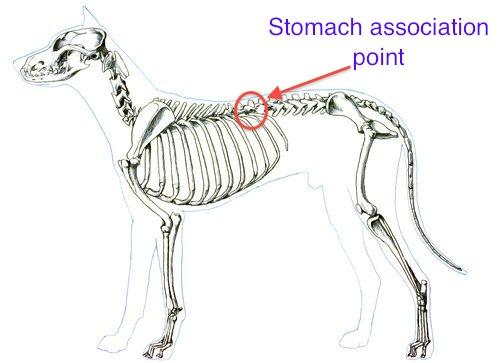
Why dogs get gas and how to prevent It
Contents
I have said many times that dogs are my favorite lifeform. However, even dogs come with little ‘flaws’ and one of them is their tendency to flatulate.
There have been numerous jokes written and cartoons drawn about people using their dogs as scapegoats when they accidentally ‘let go.’
In other words, some canines are well known for their ability to clear out a room in a second when the food does not fit.
But seriously, people often ask why dogs get gas and what can be done about it.
Why does kibble make dogs gassy?
Excessive gas production is usually caused by incomplete or inefficient digestion of the right food or because of an inappropriate diet and especially heavily-processed kibble.
Most people now understand that processed food is generally not good for our dogs. Such food usually sits in warehouses and is stored for months before they end up in the dog bowl. They commonly include grain, rancid fat, poor-quality diseased meat by-products, hair, feathers, chemicals and preservatives. There are many videos on this topic.
But even if processed food was made of the best quality ingredients, it still is far from what nature intended.
Why some breeds have weaker digestion
When it comes to digestion, there is a huge difference between different dog breeds and individual dogs. Some dogs do not have the same ability to produce sufficient levels of digestive acids and enzymes.
For example, when you look at herding dogs, such as German shepherds, border collies and poodles, they usually have weaker digestion than Labradors or golden retrievers.
My thought is that the breeders of herders unconsciously selected dogs with weaker digestion because they needed dogs with a lower food drive. Herding dogs are bred for herding and not eating the sheep!
How does the pancreas, stomach and digestion relate to the spine?
Digestion starts with the enzymes in saliva and continues in the stomach and intestines. The stomach and the pancreas play crucial roles in digestion. Both of these organs are closely connected with the thoracic lumbar junction of the spine.

The stomach and pancreas function is dependent on receiving their energy flow from this segment. This is explained more in-depth in my article on stomach bloat and pancreatitis.
When energy flow decreases, the mobility of the stomach is compromised. It also leads to lower than the optimal production of gastric juices and pancreatic enzymes.
A simple way of improving your dog’s digestion
If your dog has a tendency to have gas or diarrhea, mix 0.5 to 1.5 teaspoons of raw, organic apple cider vinegar in food.
I also propose that you pay attention to the 13th intervertebral space and have your dog’s back examined by an experienced physical therapist or chiropractor.
Digestive enzyme supplements – are they good or not?
People often ask if they should give enzyme supplements and the answer is yes, in some situations.
Think of digestive enzymes as a crutch for times when the body is not producing enough digestive enzymes on its own. However, giving these enzymes on an ongoing basis to dogs that do not need them will decrease their digestive enzyme production.
In my opinion, it is better to improve your dog’s enzyme production before supplementing them. Crutches are good when we cannot walk, but they will make us weaker over time. It is important to exercise to improve the function.
If your dog’s digestion is really weak, you may need to find good quality digestive enzymes containing Papain and Bromelain.
Are antacids good for dogs with poor digestion?
Using antacids will decrease the production of gastric juices, which will have a negative impact on your dog’s digestion.
The role of bacterial microflora on flatulence
Bacterial microflora is crucial to proper digestion and reducing flatulence. A diverse population of bacteria also prevents the growth of disease and flatulence-causing bacteria. It is also extremely important for proper immune system function because 80 percent is directly related to the bowel. The healthier the microflora, the less flatulence and more efficient immunity.
Why low carbohydrate food is better
Grain and starches are not a natural part of a canine’s diet. Dogs have much shorter digestive tracts than herbivores and can’t process high carb foods very well. This often results in excessive food fermentation and flatulence.
Avoid antibiotics
The overuse of antibiotics in veterinary medicine is also directly related to flatulence. Such practices kill off the beneficial probiotic bacteria and allow resistant pathogenic bacteria to thrive.
Simple steps to prevent flatulence
- Ideally, do not feed kibble and stop feeding grain and milk products – including yogurt.
- Avoid any grain-based treats and make sure your dog doesn’t get junk food from others.
- Switch to a raw or a cooked meat diet with veggies and bones and refer to videos about natural diet preparation.
- Have your dog adjusted by a chiropractor or treated by a physical therapist to have the crucial spinal areas such as T13, L4 and L 6-7 checked.
- If you see certain foods aggravate your dog, remove them for some time. If you reintroduce these foods and your dog reacts again, I suggest eliminating them longer or permanently.
- Many dogs do not tolerate beef, buffalo or bison well. It may be that they have not evolved on a diet containing such meat. It is rich in arachidonic acid, which has high inflammatory properties.
Supplements for flatulence
- Give your dog all-natural minerals and certified organic whole-food vitamins.
- Mix 1/2 tsp to 2 tsp of apple cider vinegar in your dog’s food.
- Add high-potency probiotics to your dog’s food to replenish the gastrointestinal microflora. Remember that there is a significant difference in the microflora of humans and dogs. That’s why I recommend dog-specific probiotics made with organic ingredients.
© Dr. Peter Dobias, DVM